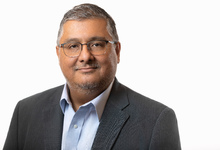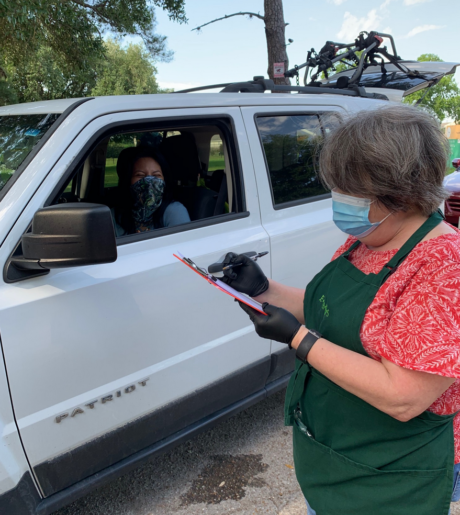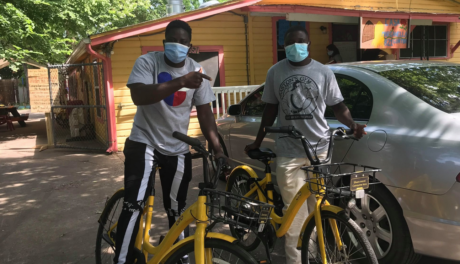
By Eusebio Diaz
Chief of Staff
On August 25, 2017, Hurricane Harvey made landfall on the Texas gulf coast. For the residents of Southeast Texas, hurricanes and tropical storms are not unusual occurrences. However, after three days, rural communities along the coast and the greater metropolitan area of Houston were devastated by torrential rains that produced 30 to 60 inches of rain. It was the most rainfall produced by a single hurricane system in U.S. history. As widespread as the devastation was, some felt the effect more severely and have not yet fully recovered. Many of the area’s most vulnerable and low-income families continue to suffer unsafe housing conditions, financial hardships, and the lingering effects of trauma with limited access to assistance—three years later.
In addition to the vulnerable, according to studies by EHF and the Kaiser Family Foundation, immigrants, Latinos, and Black people felt the effects more severely and experienced greater challenges in accessing assistance. The thing is, for many of those deeply affected, Harvey only showed what was already there: that those who are vulnerable before a catastrophic event are much more vulnerable during the event and will continue to suffer long afterwards.

Fast forward to 2020. With the country in a virtual lockdown as a result of COVID-19, a similar pattern is emerging. Although a pandemic and a hurricane are quite different crises, once again, the poor and people of color are being impacted disproportionately more so than the general population. The reasons for these dramatic differences lie in the social and economic structures of our country.
People of color, particularly Latino and Black people, are less likely to have jobs allowing them to work remotely and less likely to have health insurance. Social circumstances, such as crowded housing, reliance on public transportation, and structural racism have also been identified as factors increasing the risks for people of color. Further, chronic illnesses that are deeply rooted in community-level disparities complicate and make Latinos and Black people more likely to succumb to the virus. Combined, these factors have resulted in Latino and Black people being infected 3 times and 2.75 times, respectively, the rate of White people.
Like other funders that have grappled with determining how best to respond to this pandemic, EHF has also given this critical issue serious thought. As the disparities and indicators for COVID-19 risk have shown, one thing became clear: the urgency to continue the work of addressing social and community factors  that impact health outcomes has never been greater. In staying the course and focusing on the social and community factors that create and perpetuate health inequities, EHF is doing so with the understanding that unless these issues are addressed, the next crisis will again prove devastating to marginalized communities. Short-term crisis relief is crucial. But for many who faced health challenges as a result of social conditions prior to a disaster, their crisis doesn’t end but, in fact, continues and is likely to worsen.
that impact health outcomes has never been greater. In staying the course and focusing on the social and community factors that create and perpetuate health inequities, EHF is doing so with the understanding that unless these issues are addressed, the next crisis will again prove devastating to marginalized communities. Short-term crisis relief is crucial. But for many who faced health challenges as a result of social conditions prior to a disaster, their crisis doesn’t end but, in fact, continues and is likely to worsen.
Staying the course for EHF does not mean business as usual. It means doubling down on our efforts to impact health at the systemic, social, and community level, to affect change that is lasting.
Knowing that addressing systems and community change requires strong, healthy partners, our response during the pandemic has consisted of ramping up our support of partners who have been a vital part of this work with grant funding and technical assistance to help them make the pivots necessary for a COVID, and post-COVID, environment. Key to our goals of addressing systems and community change is the health and viability of these organizations and groups vital to this upstream work. EHF’s efforts to transform the health care system, to focus on health and not just health care, and to engage communities to address systemic issues demands that we remember those who continue to suffer three years after Hurricane Harvey and that those in our communities who are most vulnerable during COVID-19 will continue to be vulnerable after the pandemic unless we work to address those issues at the root of health disparities. And this cannot be done without our partners who have been a part of this effort.
If anything, the pandemic has demonstrated that filling the gaps in health and safety net efforts without addressing the systemic problems that are at the root and perpetuate these gaps in the first place is not enough. Subsequently, staying the course, in this case, is maintaining and building on our efforts to alter the status quo by continuing to work towards community, social, and systems change.